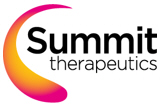
Information on Summit
Summit is a leader in antibiotic innovation. The Company’s new mechanism antibiotics are designed to become the new standards of care for serious infectious diseases.
Due to the increase in antibiotic resistance, bacterial infectious diseases are one of the biggest threats to global health, food security and development according to the World Health Organization (“WHO”). The WHO has stated that antibiotic resistance is rising to dangerously high levels in all parts of the world, that new resistance mechanisms are emerging and spreading globally that threaten the ability to treat common infectious diseases, and that without urgent action the world is heading for a post-antibiotic era in which common infections and minor injuries can once again kill. Today, it is estimated that approximately 700,000 people die of resistant infections every year. The 2016 O’Neill Review on Antimicrobial Resistance stated that by 2050, an estimated 10 million lives a year with a cumulative $100 trillion of economic output are at risk due to the rise of antibiotic resistant infections.
Summit’s strategy is to develop new mechanism antibiotics that can show significant advantages over current standards of care in clinical trials and offer a compelling value proposition to payors. Through these collective efforts, Summit believes it can position its new mechanism antibiotics for commercial success and help combat the threat from antibiotic resistance.
Summit’s pipeline currently includes new mechanism antibiotics for the treatment of infections associated withClostridium difficile,Neisseria gonorrhoeae and ESKAPE pathogens. In addition, Summit’s proprietary Discuva Platform is being used for the discovery and development of new mechanism antibiotics to support the expansion of the Company’s pipeline.
Ridinilazole for the treatment ofC. difficile infection
Summit’s strategy in antibiotic development is exemplified by ridinilazole, the Company’s novel-class, Phase3-ready precision antibiotic in development for the front-line treatment ofClostridium difficile infection (“CDI”).
CDI is a bacterial infection of the colon that produces toxins causing inflammation of the colon and severe diarrhoea. CDI can also result in more serious disease complications, including pseudomembranous colitis, bowel perforation, toxic megacolon, sepsis and death. It is estimated that there are over one million cases of CDI annually in the United States and Europe, with CDI associated with approximately 29,000 deaths per year in the United States alone. The community of microorganisms that make up the natural gut flora, commonly referred to as the “microbiome”, is known to play an important role in protecting against CDI. The US Centers for Disease Control and Prevention (the “CDC”) classifiesC. difficile as one of three bacteria that pose an urgent healthcare threat, the highest warning level.
Based on clinical trial results to date, ridinilazole selectively targetsC. difficile bacteria without causing collateral damage to the gut microbiome, and therefore has the potential to be a front-line therapy that treats not only the initial CDI infection, but importantly reduces the rate of CDI recurrence.
In a Phase 2 proof of concept clinical trial, ridinilazole demonstrated clinical and statistical superiority in sustained clinical response (“SCR”) over vancomycin, the current standard of care. SCR is a combined endpoint that measured cure of the initial infection and whether patients had disease recurrence 30 days after completing treatment. In the Phase 2 trial, ridinilazole achieved a SCR rate of 66.7% compared to 42.4% for vancomycin.
Ridinilazole is expected to enter Phase 3 clinical trials in the first quarter of 2019. The Phase 3 programme has been designed to be similar to the Phase 2 clinical trial. The programme will comprise two global Phase 3 clinical trials that will enrol approximately 700 patients each. The trials will be randomised and double blind with half of patients to be dosed with ridinilazole, and the other half with vancomycin. The design of the Phase 3 trials also includes various health economic outcome measures that are expected to support the commercialisation of ridinilazole.Top-line data are expected to be reported in the second half of 2021.
